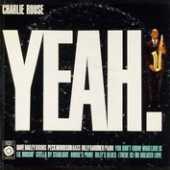The Pros and Cons to the Auto Bailout
The Pros and Cons to the Auto Bailout
If you are wondering yourself what many other Americans are wondering, as it relates the big three auto maker and whether or not any of them will be in business come this time next year, there are some pros and some cons to ponder. Firstly, what happens if the bailout is successful, and what does that mean for you and me? Secondly, what if the bailout fails, who foots the billions of dollars in loans? And finally, is this bailout worthwhile, or should the auto makers be forced into bankruptcy? And one more thing to consider here: what effect has the auto maker unions had on the failure of the big three auto makers?
The Pros
The auto makers get a second chance. The auto maker unions get a taste of their own medicine and realize that they can no longer hold the industry hostage to their greedy and ridiculously pricey demands. The industry will undergo much needed reform. The ending results will be higher quality cars that cost far less and are much more reliable. If the auto makers succeed that is.
The Cons
If we don’t bailout the big three auto maker’s, nearly a million people in the United States and in Canada will lose their jobs. Unemployment rates will soar. Crime will follow. People will become desperate and irrational. The economy will be hit hard with one of our largest industries sinking under. America will no longer make cars, which is quite embarrassing as we made the first of them. And millions of consumers will be left owning half valued or greatly devalued cars that have no warranty and cannot be sold.
Are Unions the Main Problem?
Many people may disagree with me here—namely those who enjoy numerous expensive benefits that are afforded to them by the auto workers unions—but the reality here is twofold. There is no place in modern day society for socialism to the extent and control, and manipulative financial power that any job union holds. It is certainly not the Industrial Revolution anymore, where unions were once necessary to keep away greedy corporate moguls from using labor forces unethically.
Rather, the tables have quite turned, and now it’s the unions that have the companies by the necks, when there is not place for them in today’s society. Companies do practice fare hiring acts. They do not discriminate, or are held liable, and people don’t need to be suckered out of money for a union when they can easily utilize a number of avenues to resolve complaints against an employer.
Unions drain working capital and hold big companies hostage, costing them billions of dollars a year in lost revenue; they are a major culprit in the auto makers going under. Toyota, for example, is union free, and a worker costs about fifty bucks per hour to employee there, as opposed to around seventy three dollars per hour at a big three union plant. The difference: billions of dollars per year; billions that could see the big three auto makers bailing themselves out instead of us having to foot the bill!

